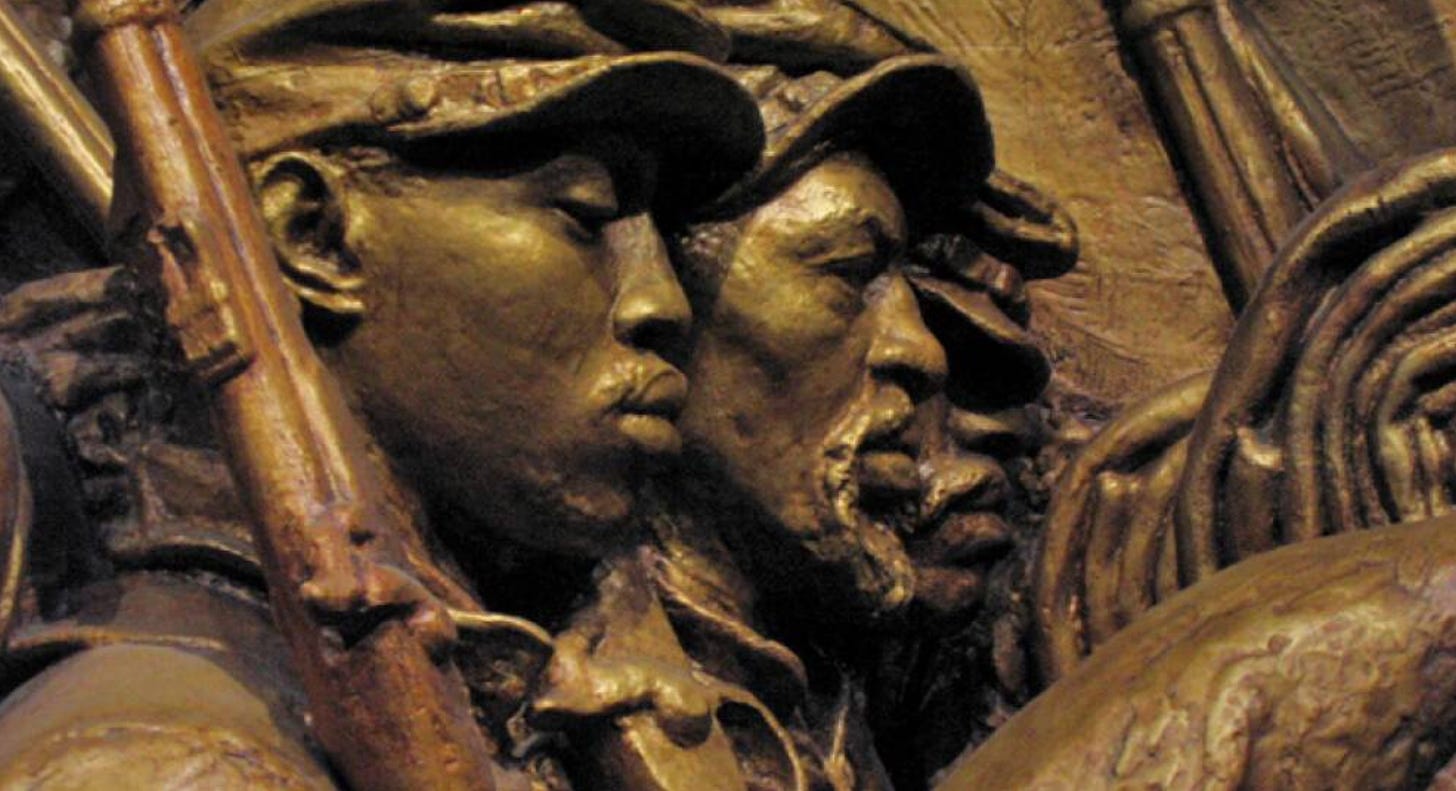One of the many reasons that I find Robert Gould Shaw to be so interesting is that he is so difficult to pin down. His views concerning the war, the raising of Black soldiers, and emancipation fall along a wide spectrum, especially in 1862. As I suggested the other day, the second year of the war had a profound impact on this young man.
He confronted enslaved people seeking freedom and experienced the ugliness of battle at Cedar Mountain and Antietam, where numerous friends were killed and wounded.
His letters point to the emotional and physical toll of war. It also reinforced what I am coming to see as his pragmatic view of the overall conflict. Shaw never viewed the war as a moral crusade, in contrast to his abolitionist parents. He understood the importance of the Union, but even this commitment wavered at certain times.
Ultimately, he wanted the war to end and the opportunity to get on with his life.
Such a view conflicts with popular memory of Shaw. We tend to see his acceptance of command of the 54th Massachusetts Regiment as his destiny and that of a nation inching toward emancipation and the end of slavery. Shaw is etched into our collective memory for all time atop his horse leading his Black soldiers through Boston at the end of May 1863.
This works well in the construction of national myths, but it does nothing to help us understand Shaw himself.
Shaw was offered command of the first Black regiment raised in the North at the beginning of February 1863, but consider what he wrote just a few weeks earlier on December 23, 1862.
They say that “Uncle Abe” is on the verge of lunacy. I don’t wander at it. I am afraid now there is a danger of the government backing down. I had rather stay here all my life (though, in this case, I should pray for a short one) than give up to the South. The most satisfactory ending to me, would be have them brought to their knees, and then kicked out, and and allowed to set up for themselves with certain limits. I would have them hemmed in on all sides by free States, and not allowed a chance of extending.
There is a good deal of frustration that comes across having been written just ten days after the Union defeat at Fredericksburg. He is about to spend another Christmas away from family and loved ones. Shaw also knows that on the first day of the new year, Lincoln will likely sign the Emancipation Proclamation. He also likely knows that such a policy will open the military to the recruitment of Black soldiers.
More than anything, Shaw wants the war to end, but what I find so interesting are the terms that he is willing to accept to bring about a cessation of hostilities. Shaw was willing to see an end to the war without an end to slavery. I can only imagine how his parents responded to this letter.
It’s a reminder that had the war ended by December 31, 1862 Shaw would have been perfectly content. Slavery would be “hemmed in on all sides by free States,” thus solving the problem that led to the war to begin with.
This is not the Shaw that many of us have embraced, which tells us something important about contingency.
The continuation of the war forced Shaw to confront new questions and challenges, the consequences of which he could not have foreseen. In many ways, Shaw’s military career is a metaphor for the nation as a whole. The United States edged forward from 1862 into 1863 not fully understanding the policies that it would enact and the consequences of doing so. Emancipation fundamentally shifted the trajectory of the war and the nation.
Policies that few Americans could have imagined in 1861 were now official policy by 1863. Shaw was ready to lay down his sword at the end of 1862, but the war continued. The last six months of his life were fundamentally different from what came before, but his command of the 54th was not inevitable and his understanding of his role as the commander of a Black regiment would evolve slowly as well as its broader significance for the nation itself.





You’re focus on this young man is truly appreciated. I believe your book will add greatly to our understanding of the causes of the war and results of the Union victory.
Shaw seems to have supported the Republican platform of 1860, supported by Lincoln, to prevent any extension of slavery without abolition in the slave states. I like Shaw’s addition of surrounding the slave states by free states, which leads me to this question: What plan(s) did the Confederacy have for economic growth, or even maintenance, if secession had been successful?